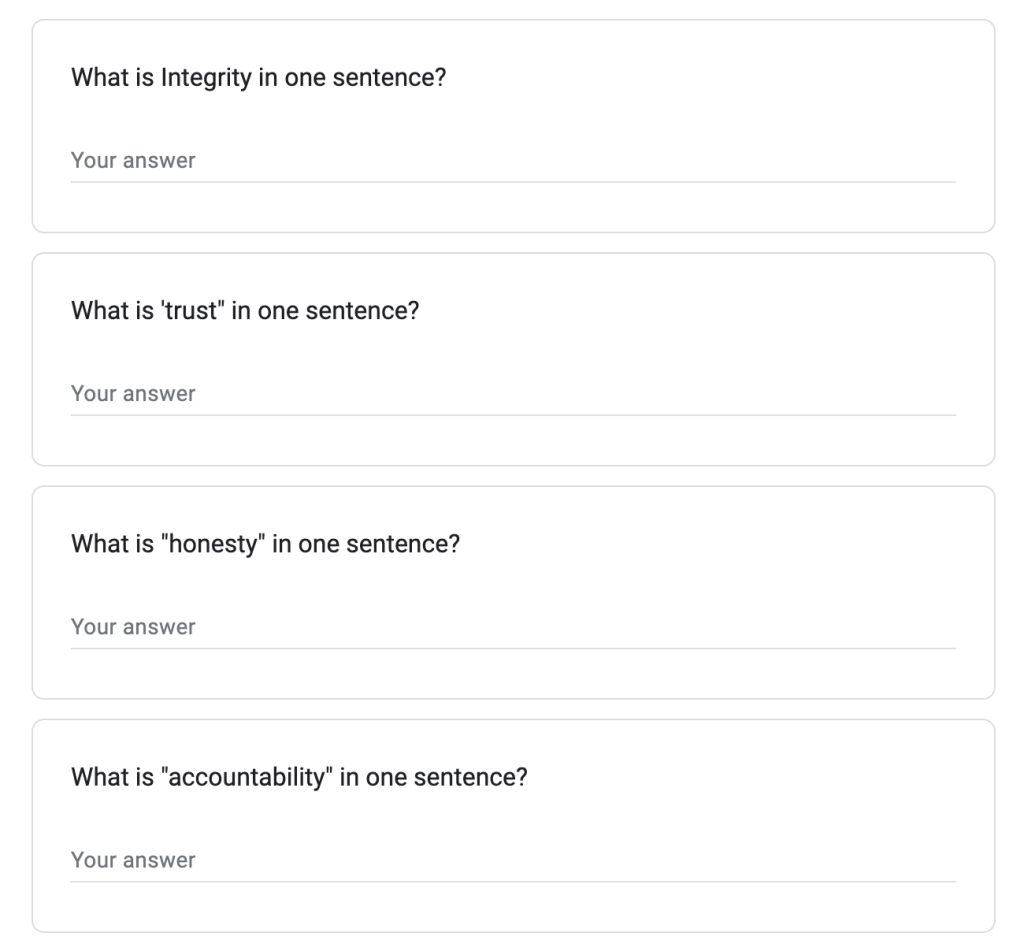One of the things that amazed me as I started coaching was the realization of how subjective we humans are. Before I coached I used to be much less curious and humble in the sense that I assumed I know what people meant.
So if someone said a sentence like “We really need to create more ownership in our team” I would discuss the topic with them, not once considering to ask “What is ownership?”. I just “projected” my interpretation of the term on the conversation.
As a coach, I see our collective tendency to assume we understand what the others mean, causing incredible amounts of friction. In hindsight, now that I realize that for 40+ years I roamed this earth not really understanding what people meant when they talked to me, the fact that we were able to achieve anything together looks to me like a form of miracle to me.
But the good news is that it is actually possible to bridge this gap once we develop awareness to it and apply a healthy dose of humility mixed with curiosity.
What do you mean when you say “ownership”?
If you want to experience how subjective we are take a second and complete this short questioner. I asked people to share their definitions of some of the most common values companies choose.
Once you fill the questioner you will be able to click the link and see how others defined the same values. It is fascinating to see.

We are having a conversation with ourselves
Let’s take the example below from the values questioner. In it, you can see how people defined “ownership”.

Let’s imagine, for example, that you are having a feedback session with one of your team members and you feel that they are not displaying enough “Ownership”.
What happens in most cases is that a discussion would evolve and examples would be shared demonstrating cases in which “ownership” wasn’t displayed… And in many cases, these discussions would be frustrating for both sides.
No wonder! We are spending time discussing “ownership” and passionately sharing examples, without stopping once to ask each other “What do you mean when you say ownership?”.
A conversation in two different languages
When we read the different definitions of “ownership” it becomes obvious that this attempt of communication is futile. These two people are talking completely different languages even though they are both using the same word.

What are the chances of two people aligning toward a common vision when one person thinks ownership is is “up to me to get things done” and the other thinks it’s enough to “feel a sense of responsibility”…
There is no wrong or right answer. But still… How can both sides work together if they have completely different “units of value” in which they value each other?
It’s x10 in a room full of people
Now imagine a meeting room full of people each “listening” to the conversation but not really understanding the other side means. How can we expect to achieve anything like this?
Listening starts with “not knowing”
When I started coaching I was troubled because I was sure I wasn’t a good listener… It took me time to realize that active listening isn’t a result of a skill or effort I exert… It’s a byproduct of curiosity and humility.
Once I realized I don’t really understand the other person I developed an obsessive curiosity about each world they say. When I talk to someone I do it with a deep sense of “not knowing”. I assume I have no idea what they mean and I ask clarifying questions about things I would never have thought of in the past…
“You say we should move faster… When you say fast what do you mean?”
“You say we need to be more transparent… What do you mean when you say transparent? Why is that important to you?”
“I hear the room, and obviously we feel that there is a lack of ownership… I think it would be great if everyone took a minute to define what ownership is for them and shared it with the room”
A common vision
They call vision a vision because it is an image of the future you can see.
One of the most important aspects of investing the energy and time in truly understanding the people around us is that once we see the world from the eyes of the others we are able to work together and created a common image of reality.
Just think of the level of friction we remove.
Just think of the levels of trust we can build.
If we truly SEE the world together.